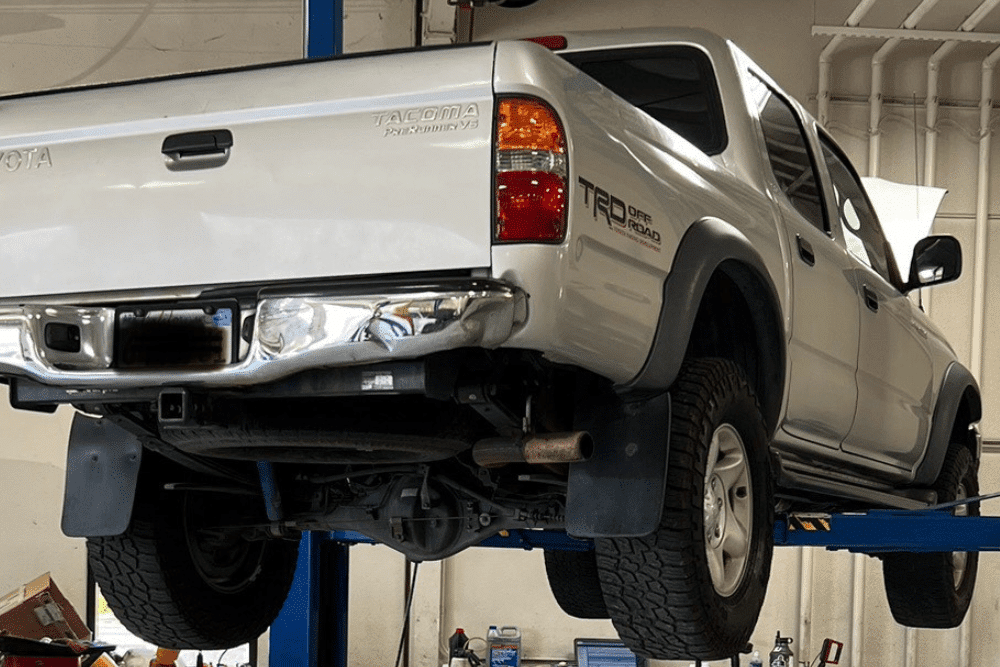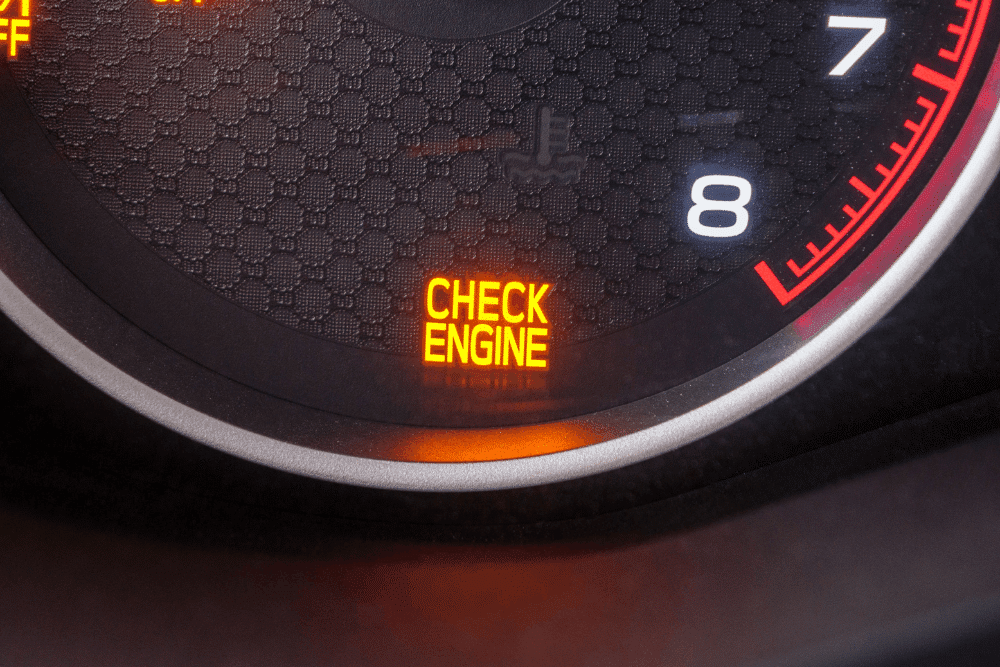If you drive or manage a diesel vehicle in Morgan Hill, you know that reliability is not just a convenience but a necessity. Whether you are a daily commuter in a diesel pickup or a fleet manager running delivery and construction trucks, keeping your vehicles in top condition requires staying ahead of mechanical wear as well as California’s strict emissions standards.
This is where the diesel aftertreatment system plays a crucial role. Made up of the DPF, EGR, and DEF components, it is designed to reduce harmful emissions while keeping your truck efficient and road-compliant. The challenge is that when one part of the system fails, performance drops, repair costs increase, and downtime quickly follows.
In this guide from C&M Auto Service, Inc., you will find practical insights into how these systems work, the most common reasons they fail, and the steps you can take to protect your truck. Just as importantly, you will learn how to avoid costly pitfalls by choosing the right diesel mechanic for aftertreatment system repair in Morgan Hill.
Why Aftertreatment Systems Exist (And Why They Matter More in California)
For decades, diesel engines were known for power and longevity but also for producing heavy soot, black smoke, and nitrogen oxide emissions. With California leading the charge on stricter environmental regulations, manufacturers introduced advanced aftertreatment systems to keep diesel trucks both road-legal and environmentally responsible.
In Morgan Hill and throughout Santa Clara County, these systems are not optional; they are essential. Regular inspections, smog checks, and roadside monitoring mean that ignoring warning lights can quickly put your truck out of compliance. For fleet operators, even one truck out of service can disrupt schedules, damage client trust, and reduce profitability.
Breaking Down the Diesel Aftertreatment System
Your truck’s aftertreatment system isn’t just one part. It’s a series of components working together. Here’s a deeper look:
Diesel Particulate Filter (DPF)
- Purpose: Traps soot and ash particles in the exhaust.
- Process: Periodically “burns off” this buildup in a process called regeneration.
- Common problems: Clogs from excessive soot, failed regens, or ash saturation.
- Impact if ignored: Poor acceleration, higher fuel consumption, eventual limp mode.
Exhaust Gas Recirculation (EGR)
- Purpose: Reduces NOx emissions by recirculating exhaust gases into the intake.
- Process: Dilutes the oxygen in combustion to lower temperatures and cuts harmful emissions.
- Common problems: Carbon buildup, stuck valves, leaking EGR coolers.
- Impact if ignored: Rough idling, engine knock, or costly internal engine damage.
Diesel Exhaust Fluid (DEF) / SCR System
- Purpose: Chemically neutralizes NOx using DEF fluid.
- Process: Injects DEF into the exhaust stream, where it reacts with a catalyst.
- Common problems: Crystallization from poor-quality fluid, pump or heater failures, sensor malfunctions.
- Impact if ignored: System lockouts, limp mode, increased emissions fines.
If you’re noticing warning lights tied to any of these systems, it’s time to schedule aftertreatment service in Morgan Hill.
How to Spot Trouble EarlyNot Expect
Most aftertreatment issues start with subtle signs. Catching them early saves both time and money. Here’s what to watch for:
- Warning lights: DPF, Check Engine, or DEF lights shouldn’t be ignored.
- Frequent regenerations: If your truck is constantly trying to burn off soot, your DPF may be clogged.
- Poor performance: Reduced power, hesitation, or fuel economy drops are common.
- Unusual exhaust: White, black, or acrid-smelling smoke signals a failing system.
- Overheating or coolant loss: May indicate a leaking EGR cooler.
The “Silent Costs” of Ignoring Warning Lights
It’s tempting to keep driving when a warning light comes on, especially if the truck seems to run fine. But here’s what really happens behind the scenes:
- Reduced fuel efficiency as clogged filters force the engine to work harder.
- Accelerated wear on the turbocharger, injectors, and exhaust components.
- Forced downtime when the truck goes into limp mode.
- Compliance risks if roadside inspections reveal malfunctioning emissions equipment.
For fleets, these hidden costs add up quickly. A truck out of service doesn’t just rack up repair bills—it delays projects, disappoints customers, and reduces profitability.
Fleet vs. Single-Truck Drivers
One unique angle often overlooked in aftertreatment discussions is how the impact differs between an independent driver and a fleet manager.
- Independent Drivers: A single repair delay means missed work or postponed jobs. Investing in preventative care gives peace of mind and protects income.
- Fleet Operators: One truck down might not seem catastrophic, but multiple neglected aftertreatment systems can disrupt schedules, increase overtime pay, and even force the business to rent replacement trucks.
Both groups benefit from preventative maintenance, but the scale of the consequences is what makes fleet-focused diesel service especially critical in Morgan Hill.
How Preventative Maintenance Saves Thousands
A clogged DPF or faulty EGR valve doesn’t just appear overnight. It builds over time. That’s why preventative maintenance is the most powerful way to control repair costs.
Here’s what works best:
- Regular diesel DPF cleaning in Morgan Hill every 100,000–150,000 miles.
- Periodic EGR inspections to clean or replace valves before buildup causes failure.
- DEF system checks to confirm heater, pump, and sensor function.
- Use high-quality DEF and store it properly to avoid contamination.
- Consistent oil changes with the right grade to reduce soot production.
Schedule your preventative maintenance with C&M Auto Service Inc. to avoid costly breakdowns.
C&M Auto Service Inc.: Building Trust with Local Drivers Every Day
By this point, you understand the complexity of aftertreatment systems. So why should you bring your truck to us?
At C&M Auto Service, Inc., we’ve built our reputation on:
- Certifications that matter: ASE Certified, AAA Approved, Bosch Certified.
- Warranty protection: 3 years / 36,000 miles on most repairs.
- Advanced tools: Hunter alignment systems, ADAS calibration, and factory-level diagnostic scanners.
- Comprehensive diesel services: From truck EGR repair to solving semi truck DEF system problems, we do it all.
- Family values: We treat every customer with the same honesty, trust, quality, and love that we show our team, because to us, you’re family.
For local businesses and fleet managers, we also provide priority scheduling and tailored maintenance plans to minimize downtime.
The C&M Auto Service Inc.'s Diesel Repair Process
Our approach is thorough and focused on long-term reliability:
- Diagnostic Scans: Pulling and interpreting fault codes with professional software.
- Physical Inspections: Checking filters, valves, sensors, and wiring.
- Testing Systems: Measuring flow, pressure, and DEF quality.
- Targeted Repairs: Cleaning, replacing, or recalibrating components as needed.
- Verification: Ensuring the system meets performance and emissions standards before returning your truck.
The result is confidence that your diesel will not just run today but for many dependable miles ahead. To learn more about how we can keep your truck performing at its best, visit our dedicated diesel repair page and schedule your service in Morgan Hill.
FAQs: Diesel Aftertreatment Repair in Morgan Hill
Can I clean my DPF at home?
You should not clean a DPF at home because DIY methods rarely remove all soot and ash and may damage the filter. Professional diesel DPF cleaning uses specialized equipment to restore proper airflow. This helps prevent power loss, poor fuel economy, and costly premature replacement.
How do I know if my DEF fluid is bad?
You can tell DEF fluid is bad if you notice crystallization around the tank cap, dashboard DEF system warnings, or failed emissions tests. Using contaminated or expired DEF causes injector and pump problems. Always check expiration dates and store DEF in a cool, dry place.
How long do EGR valves last?
EGR valves can last over 50,000 miles, but their lifespan depends on driving conditions and maintenance. Carbon buildup often shortens their performance. Routine inspections and timely cleaning help extend valve life, reduce harmful emissions, and protect your diesel engine from costly damage.
What happens if my diesel aftertreatment system fails?
If your aftertreatment system fails, your truck may enter limp mode, lose power, and release higher emissions. Ignoring the problem risks expensive repairs and regulatory fines in California. Early diagnosis of DPF, EGR, or DEF issues prevents breakdowns and keeps your truck compliant.
How often should I service my diesel aftertreatment system?
Most diesel aftertreatment systems should be inspected every 50,000 miles, with DPF cleaning recommended around 100,000 to 150,000 miles. Service intervals vary by truck usage, fuel quality, and driving conditions. Preventative maintenance ensures reliability, improves fuel efficiency, and avoids unexpected downtime.
Contact Us for Diesel Aftertreatment Repair in Morgan Hill, CA
Protecting your diesel investment goes beyond engine care. A properly serviced aftertreatment system ensures reliability, reduces costly downtime, and keeps you on the road where you belong. At C&M Auto Service, Inc., we combine decades of experience with honest, family-style service you can count on.
Visit us at 16169 Caputo Dr, Morgan Hill, CA 95037. Call 408-778-8218 to speak with our team or schedule your diesel service online. We look forward to helping you drive with confidence.


